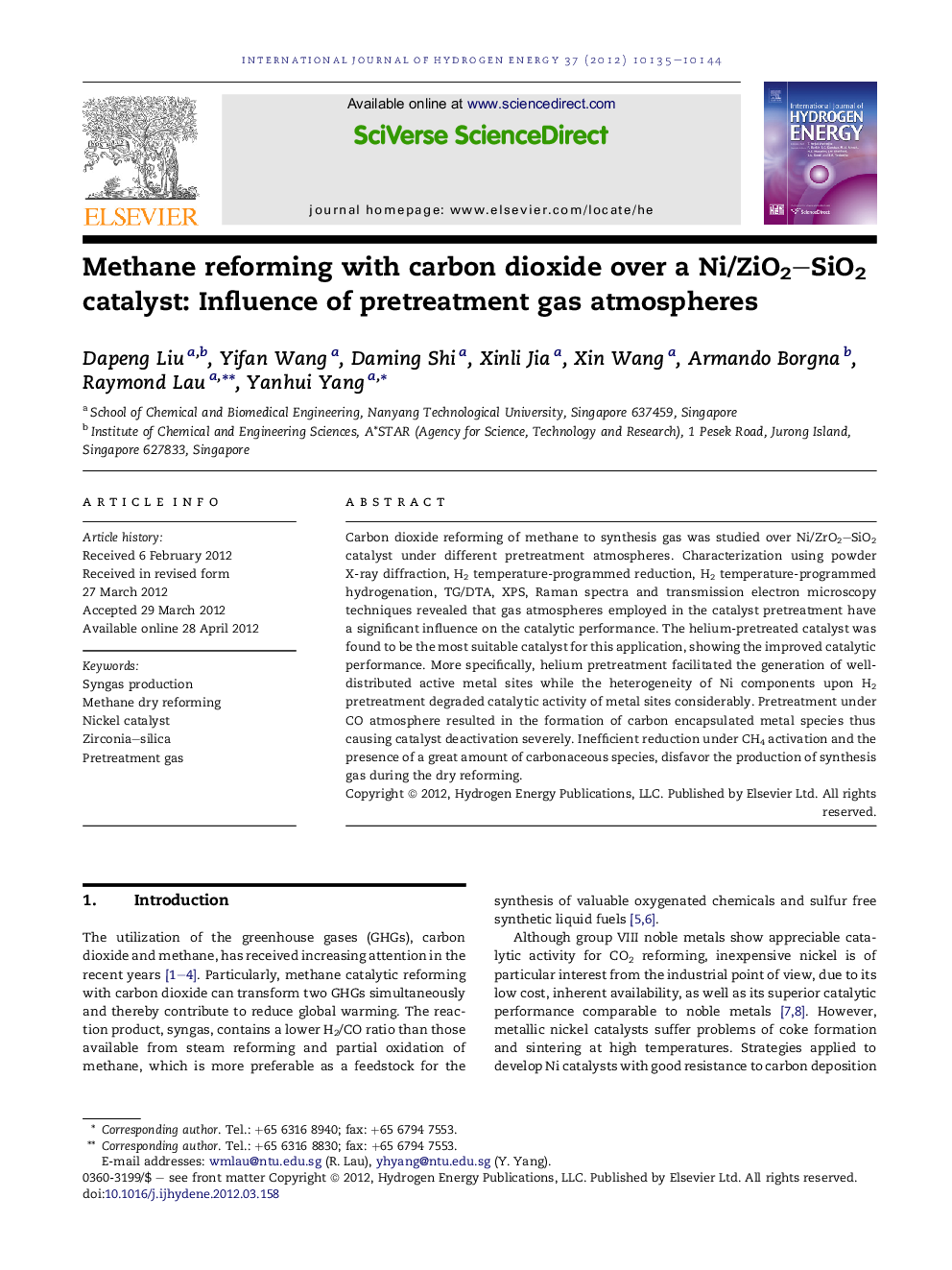| Article ID | Journal | Published Year | Pages | File Type |
|---|---|---|---|---|
| 1275200 | International Journal of Hydrogen Energy | 2012 | 10 Pages |
Carbon dioxide reforming of methane to synthesis gas was studied over Ni/ZrO2–SiO2 catalyst under different pretreatment atmospheres. Characterization using powder X-ray diffraction, H2 temperature-programmed reduction, H2 temperature-programmed hydrogenation, TG/DTA, XPS, Raman spectra and transmission electron microscopy techniques revealed that gas atmospheres employed in the catalyst pretreatment have a significant influence on the catalytic performance. The helium-pretreated catalyst was found to be the most suitable catalyst for this application, showing the improved catalytic performance. More specifically, helium pretreatment facilitated the generation of well-distributed active metal sites while the heterogeneity of Ni components upon H2 pretreatment degraded catalytic activity of metal sites considerably. Pretreatment under CO atmosphere resulted in the formation of carbon encapsulated metal species thus causing catalyst deactivation severely. Inefficient reduction under CH4 activation and the presence of a great amount of carbonaceous species, disfavor the production of synthesis gas during the dry reforming.
Graphical abstractThe influence of various pretreatment gas atmospheres on catalytic properties was investigated over ZrO2–SiO2 supported Ni catalyst for CO2 reforming of CH4. The sequence of final catalytic activity is as follows: He-pretreated > H2 pretreated > CH4 pretreated > CO pretreated. Figure optionsDownload full-size imageDownload as PowerPoint slideHighlights► Ni/ZiO2–SiO2 is an effect catalyst for CO2 dry reforming of methane. ► Various reduction atmospheres result in different catalytic properties. ► Helium is the best to hinder metal sintering and carbon deposition. ► CO atmosphere results in encapsulating carbon and Ni agglomeration. ► Inefficient reduction under CH4 was observed for Ni nanoparticles.
